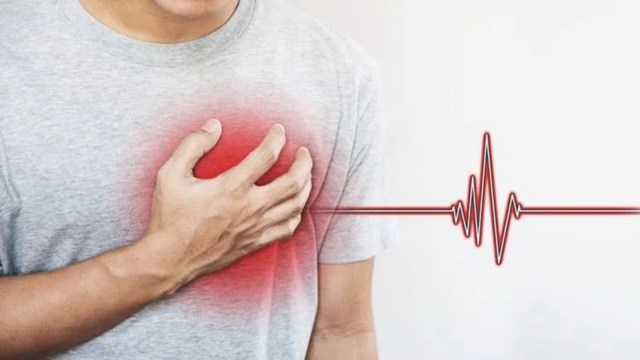Men with low testosterone at greater risk of heart disease: What a new study means for you
Dr Atul Luthra, Director, Endocrinology, Fortis Memorial Research Institute, Gurugram, explains how testosterone plays a vital role in the male body
 Low testosterone levels in men can impact their heart health and all-cause mortality, according to a recent study in the journal Annals of Internal Medicine. (Photo: Getty Images/Thinkstock)
Low testosterone levels in men can impact their heart health and all-cause mortality, according to a recent study in the journal Annals of Internal Medicine. (Photo: Getty Images/Thinkstock)If you thought that low testosterone levels in men could only reduce their libido and muscle mass, it is time to address this problem more seriously. Low testosterone levels in men can impact their heart health and all-cause mortality, according to a recent study in the journal Annals of Internal Medicine.
Dr Atul Luthra, Director, Endocrinology, Fortis Memorial Research Institute, Gurugram, explains how testosterone plays a vital role in the male body by regulating a wide range of physiological processes, primarily muscle mass and fat metabolism.
How are low testosterone levels linked to heart disease?
Testosterone is intricately linked with fat metabolism, insulin sensitivity and the maintenance of muscle mass, including the heart muscle. When your testosterone levels are low, your muscle mass declines, slowing down your metabolism. What this means is that your muscles cannot burn more calories than fat tissue. These excess calories then get converted to fat, particularly around the abdomen and you gain weight that refuses to go away easily. Fat accumulation increases heart risk by elevating blood pressure, blood glucose levels and cholesterol. Besides, a higher percentage of body fat itself suppresses testosterone levels further. Also, low levels of the hormone disturb the mood of the person and cause depression, which may affect his will to get into a cycle of heightened physical activity to neutralise the effects.
What causes low testosterone levels in men?
Low testosterone levels in men can be caused by a variety of factors. Ageing is one of the most common causes, with the hormone levels naturally declining after the age of 40. Medical conditions such as hypogonadism, where the testes produce insufficient hormones, can also lead to low testosterone. Chronic illnesses such as diabetes, obesity and liver or kidney disease can affect hormone production and regulation. Lifestyle factors, including excessive alcohol consumption, smoking, poor diet, stress, lack of physical activity and sleep could suppress hormone secretion.
Can low testosterone levels be increased?
No. Low testosterone level is due to low hormone production by the testes. However, a good lifestyle can improve overall health, which in turn impacts the hormone. Regular physical exercise, particularly resistance training such as weightlifting and high-intensity interval training (HIIT), have been shown to boost testosterone levels. These exercises stimulate muscle growth and increase hormone production. Additionally, dietary modifications can also help. Consuming a balanced diet rich in lean proteins, healthy fats and whole grains can support hormone production. Foods high in zinc (like oysters, meats and pumpkin seeds) and vitamin D (such as fatty fish, egg yolks, and fortified foods) are particularly beneficial for maintaining healthy testosterone levels.
How can low testosterone levels increase all-cause mortality?
Lower testosterone concentrations can lead to poor muscle build-up and bone health, increasing risk of falls, fractures. A key finding was that men with a testosterone concentration below 7.4 nmol/L (<213 ng/dL) had higher risk for all-cause mortality and those with a testosterone concentration below 5.3 nmol/L (<153 mg/dL) had an increased risk of cardiovascular death.
- 01
- 02
- 03
- 04
- 05






























